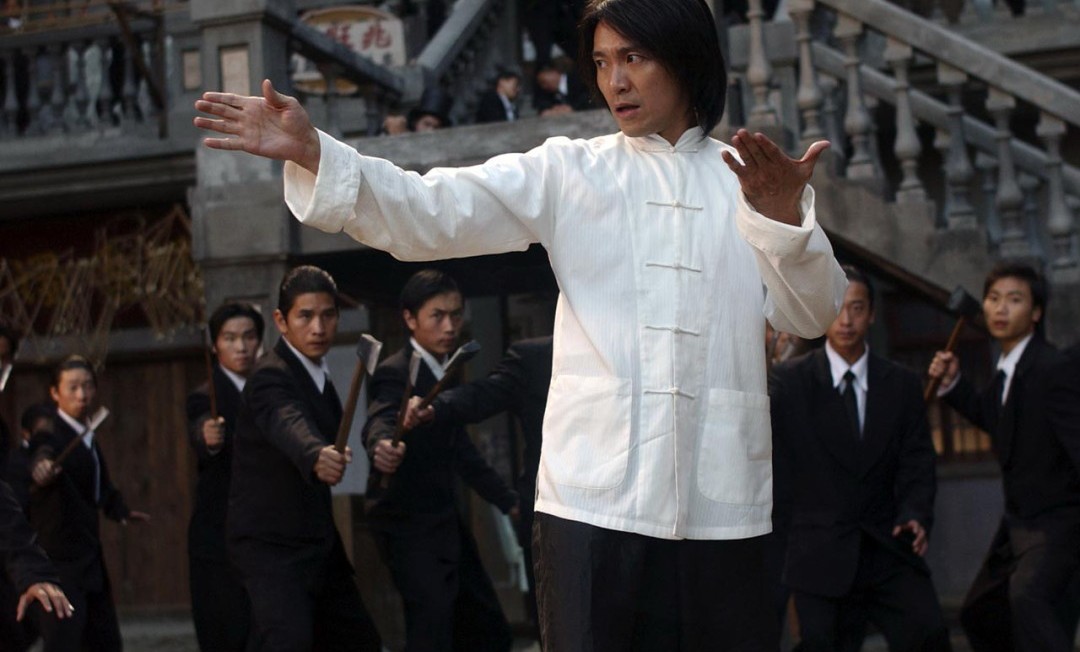Take one part kung fu film, one part Looney Tune and one part love story, and you’ve got Stephen Chow’s 2004 Kung Fu Hustle. Recognized for its brilliance in a number of circles, this new age kung fu classic is filled with epic fights, impactful performances and sublime homages to other films and other eras of filmmaking. It is truly a tour de force for film fans. Period.
[related_content slugs=”navigating-netflix-the-vastness,navigating-netflix-arrested-development,navigating-netflix-archer” description=”More Navigating Netflix” position=”right”]
While he had numerous films and TV series under his belt already, Stephen Chow really broke through to audiences with 2001’s Shaolin Soccer, a highly stylized and comical kung fu sports film. In addition to winning a number of awards, it was Chow’s first international hit and led to him Kung Fu Hustle. It is the story of a young wannabe gangster who tries to be bad despite how inept he is at it. And then there is the constant, ceaseless pull of kung fu that keeps drawing him in.
Using a similar visual tone and comical style to Shaolin Soccer, the brilliance of this film comes from the honesty in the homages to other films it draws from. These are not rip offs or recycling old ideas simply to build a film. Kung Fu Hustle is filled with true homages to films and filmmakers that have inspired Stephen Chow, that show respect and reverence to those films.
First and foremost, Kung Fu Hustle was heavily influenced by wuxia, the genre of Chinese fiction that focuses on martial artists in literature, comics, movies, television series, video games and more. In particular, the film series Palm of Ru Lai and Louis Cha’s Condor Trilogy books were key, not to mention a certain martial arts film icon by the name of Bruce Lee. This influence is highly apparent in the kung fu fight scenes, the types of characters and Stephen Chow’s costume choices.
In and amongst homages to a variety of other films, The Looney Tunes are another large part of Kung Fu Hustle. The look and the style of much of the comedy was borrowed from the golden age of filmmaking on both sides of the Pacific but the likes of Wile E. Coyote and Bugs Bunny also had their impact. The mannerisms and comedic tone of some scenes evoke images of a coyote chasing a road runner or a hunter failing to catch a rabbit. It is a good feeling to see this on the screen.
Ultimately, that is the true gift of Kung Fu Hustle. It just feels good to watch. It is the story of a young man trying to find himself and maybe make the transition from villain to hero. This is a film for classic kung fu cinema fans, comedy fans and straight up film fans alike.
_____
Ian Goodwillie is a columnist for the Spectator Tribune. Follow him on Twitter at @ThePrairieGeek and on Tumblr at iangoodwillie.tumblr.com.
Follow us on Twitter: @SpectatorTrib
